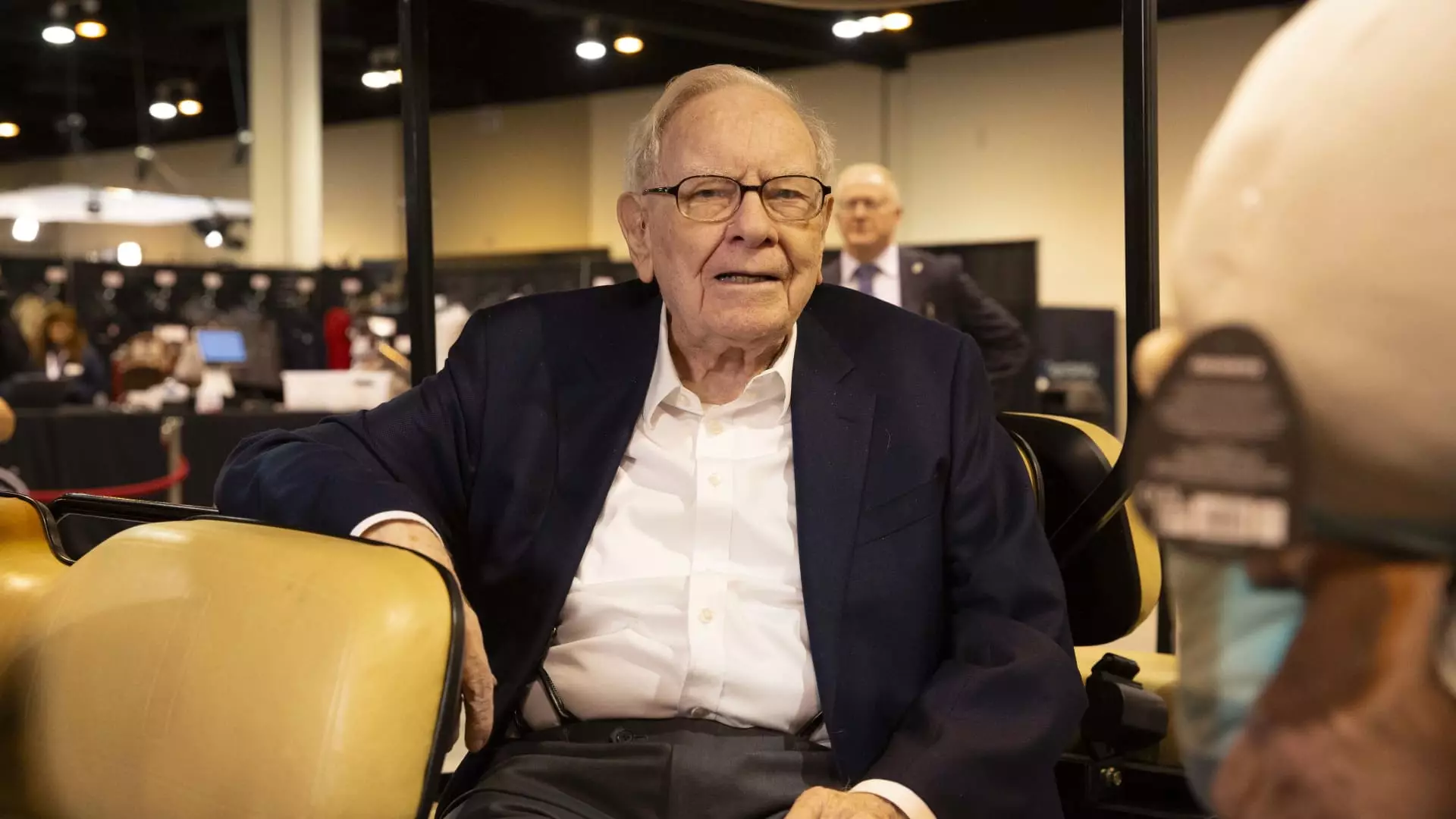In a tumultuous market year, where leading stocks have faced brutal declines, Warren Buffett’s investment conglomerate, Berkshire Hathaway, has emerged as an unexpected gem, racking up a 17% return thus far, while the S&P 500 flounders with a 6% loss. This performance is not merely impressive; it positions Berkshire among the top 10% of large-cap stocks in the U.S. The irony here is palpable: amidst economic uncertainty, Berkshire Hathaway, the company famously known for not paying dividends, is standing strong and captivating investor interest as it gears up for its forthcoming annual meeting in Omaha, Nebraska.
Buffett’s ongoing success represents a philosophy that emphasizes quality over short-term gains. His approach gives investors a rhetoric like that of a patient gardener, one who cultivates despite the storms. It’s a refreshing reminder that long-term strategies can lead to outstanding results, even when immediate gains seem elusive.
The New Income Generation ETF: A Game Changer?
Amidst Berkshire’s recent triumph, a new player has entered the field: the VistaShares Target 15 Berkshire Select Income ETF (OMAH). This fund aims to capitalize on Berkshire’s top stocks while offering an annual income target of 15% through a unique strategy of selling call options. CEO Adam Patti’s statement about investing in “the most successful investor the world has ever seen” is compelling, but it unveils an intriguing juxtaposition—turning Buffett’s non-dividend philosophy on its head to cater to income-seeking investors.
Critically examining this ETF, one cannot help but question whether it’s wise to diversify an investment in Berkshire. By adding layers of strategy such as options trading, do we risk diluting the fundamental strength that has characterized Buffett’s approach? The inherent beauty of investing in Berkshire lies in its straightforwardness. Yet, with 10.6% of this new ETF consisting of the conglomerate itself, is this merely a clever marketing gimmick to capitalize on the Berkshire brand’s stable reputation, or does it offer a tangible benefit to investors who crave quarterly returns?
Buffett’s Strategy Amidst Market Turbulence
Berkshire Hathaway’s remarkable performance is not solely attributable to its equity holdings. Buffett’s decision to hold a significant cash reserve exemplifies prudent risk management and a willingness to take calculated risks, particularly as the S&P 500 has faced significant volatility since the beginning of President Trump’s second term. At a time when many investors surrender to panic, Buffett remains steadfast, advocating for a quality-over-quantity strategy.
In contrast, the broader market appears to be experiencing a momentum shift driven by sentiment rather than fundamentals. The question lingers: Are we witnessing a turning point in investment philosophy that favors resilient companies like Berkshire over riskier ventures? Buffett’s historical stance, articulated in his lengthy letters to shareholders, confirms his belief in investing in American equities— a commitment that resonates with countless investors seeking reliable, long-term growth.
Abolishing the Dividend Dilemma? Not Quite
Berkshire’s dividend-free status has long been a contentious debate among investors, especially those seeking immediate income. Patti’s findings echo a sentiment shared by many: the desire to emulate Buffett’s investment prowess while securing income streams proves challenging. The ETF’s targeted income strategy may offer a tempting solution, yet one can’t shake the nagging feeling that it could distract from the purity of Buffett’s approach.
The allure of monthly payouts may entice newer investors, but does selling call options compromise the long-term growth trajectory that Berkshire is renowned for? Ultimately, it begs the question whether investors should prioritize short-term income at the potential cost of a solid, long-lived investment strategy.
A New Wave of Market Volatility
As we witness the fallout from recent market instabilities, Berkshire’s performance serves as a reminder that wisdom in investing often lies in aligning oneself with quality, remaining calm amidst chaos, and adhering to time-tested strategies. With volatility on the rise, the question becomes whether funds like OMAH can genuinely replicate the success of Buffett’s disciplined tactics or if they simply represent a fleeting trend in the realm of investing.
In the current landscape characterized by uncertainty and rapid shifts, Buffett’s Berkshire Hathaway stands as a beacon of both hope and exemplification of steadfastly consistent principles. The challenge remains: will emerging investment strategies respect the foundations laid by Buffett, or will they veer towards a new paradigm that prioritizes fleeting gains over long-lasting success? As the market evolves, these questions could redefine how we perceive success in the world of investing.

